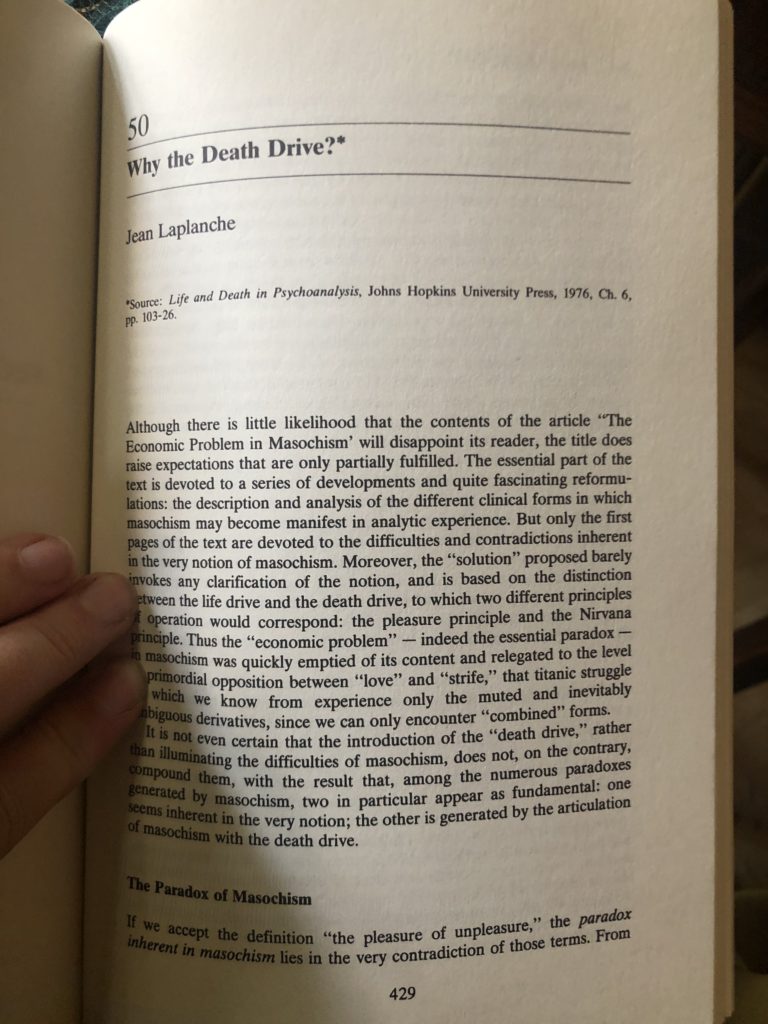People is often concerned on what it is that they need, and also what might be interesting for them, (remember this are not always the same things!), therefore, I think it is important to share some differences in the fields I am very fond of:
Psychoanalysis
Some of the things that are important to know is that psychoanalysis, according to Jean Laplanche and Jean-Bertrand Pontalis, has 3 levels:
- A research method that consists of evidencing the unconscious significance of an individual’s words, dreams, fantasy, delusions and is based
- A psychotherapeutic method based on this research and
- A set of psychological and psychopathological theories

Psychoanalytic psychotherapy, also according to Laplanche and Pontalis, is a form of psychotherapy based on the theoretical and technical principles of psychoanalysis, although without fulfilling the conditions of a rigorous psychoanalytic cure.
For example, in psychoanalytic psychotherapy, the analyst speaks more than in classical psychoanalysis.
Psychiatry is the branch of medicine that specializes in mental illness.

COACHING
Coaching, according to the International Coaching Federation (ICF), is based on a partnership with clients in a thoughtful and creative process that inspires them to maximize their personal and professional potential.
The ICF also explains how during this process the coach listens and contributes observations and questions and how interactive method creates transparency and motivates the client to act. Therefore, coaching accelerates the advancement of the client’s goals by providing greater focus and awareness of her choice. It is important to note that the coach embraces high ethical standards.
Systemic coaching, according to Peter Hawkins, “seeks to add value not only to the individual, but to all those who are affected by the coachee’s work. These are the immediate contexts, the stakeholders that the coachee serves, and also the social and cultural contexts of those involved and of course the ecological context. Also make sure that the coaching approach considers bringing in both the future and what is external”, so as not to get lost in the immediate waters of the present applicant.
Coaching supervision, according the proposed model by America’s Coaching Supervision Network, is fundamentally a process of reflection, in which supervisors create, within a framework of confidentiality, a safe space for coaches that allows them to explore their own thought processes as well as the dynamics present with their coaching engagements.
It is not necessary to have them all at the same time, however, there are moments in life that it is very difficult to go through without any of them. It is up to each one to know what would be relevant and pertinent for each one.
THE PSI WORLD AND COACHING
The ICF
The International Coach Federation (ICF) adheres to the principles of a form of coaching that honors and respects the client as the greatest expert in their personal and professional life and believes in each client as a creative, whole and resourceful being.
Building on this foundation, the responsibilities of the coach are:
• Discover, clarify and define what the client wants to achieve
• Stimulate client self-discovery
• Provoke solutions and strategies generated by the client himself.
• Maintain in the client a responsible and consistent attitude
Some of the benefits of coaching are:
Benefits for the person
• Develop our capabilities and strengths.
• Gain in efficiency and enjoy things more.
• Make decisions with awareness, knowledge, arguments and values.
• Confidence in ourselves.
• Risk for what we want.
Benefits for the organization
• Quickly and efficiently consolidate new promotions or assignment changes.
• Promote the loyalty of internal talent.
• Integrate methodology that multiplies people’s capabilities.
• Innovate in processes or management models.
• Promote business results.
Sometimes problems become so big, so complex that we give up thinking about them and consider that we have some possibility of exerting some influence on the world around us. This is the case of problems such as global warming, inequality in the distribution of resources; So, we leave it for the dreamiest, those who still have energy, or those who are at the top of the decisions: big businessmen, political leaders and/or leaders of organizations).
It seems, then, that power is required only to be able to influence the big decisions that the world or mother earth requires. And it is not like that.
There is a good possibility of constantly influencing, and what it requires is not power, it rather requires something that is perhaps difficult because it is a change of thought. A new approach to problems is required. Systems thinking is required.
